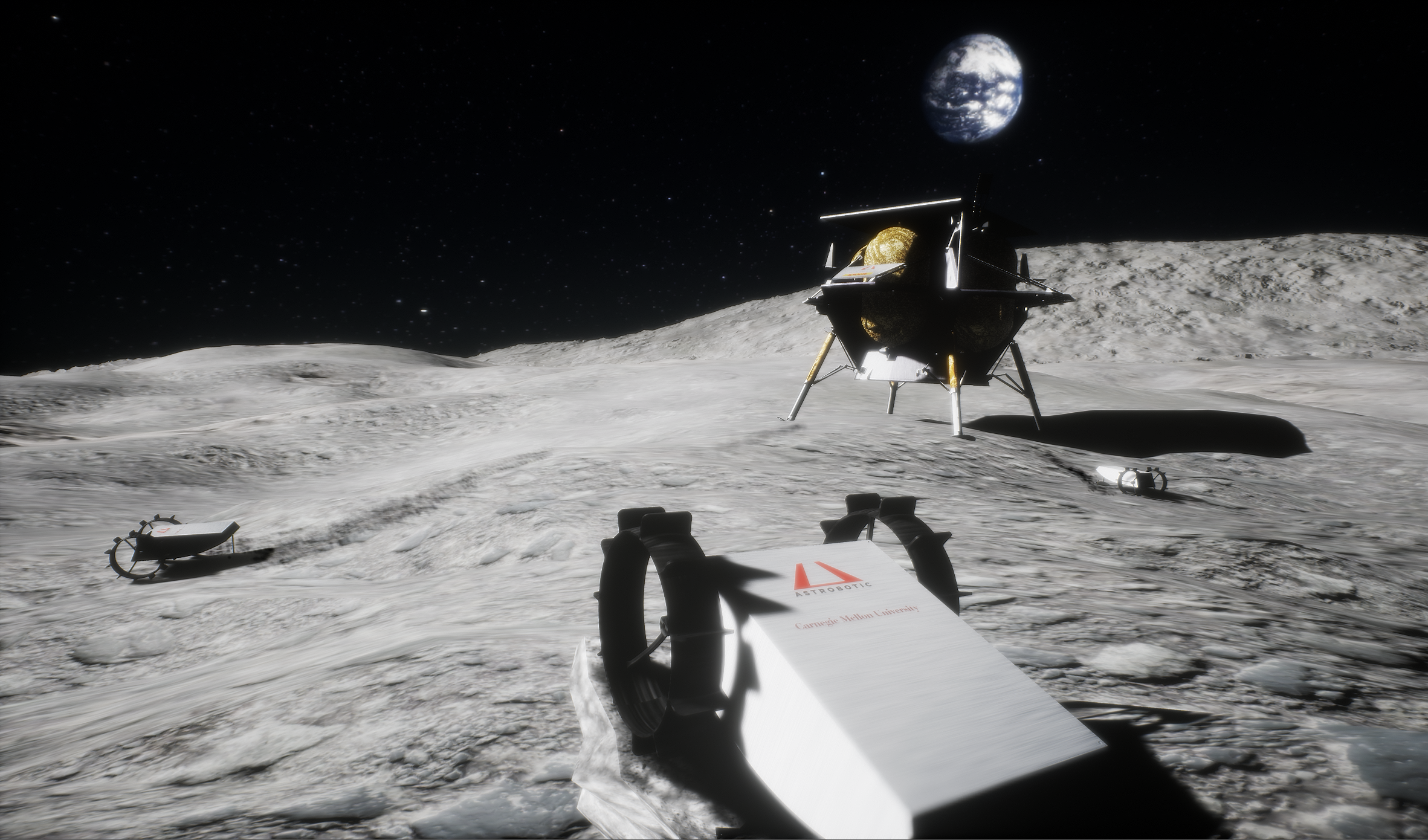NASA Awards Contract to Continue Development of CubeRover Carnegie Mellon and Astrobotic Building New Class of Compact Extraterrestrial Robots
Byron SpiceTuesday, March 13, 2018Print this page.

NASA has awarded a Phase II Small Business Innovation Research contract to Carnegie Mellon University and lunar logistics company and CMU spinoff Astrobotic Technology to continue development of a new class of small, lightweight extraterrestrial robots, called CubeRovers.
In the first phase, more than 30 Astrobotic and CMU researchers collaborated on system-wide development of a 2-kilogram rover prototype that could explore the surface of the Moon. The team performed engineering studies to determine the architecture of a novel chassis, body type, power system, and computing system, and produced novel flight software and navigational techniques for small rovers.
In Phase II, the team will further build and deliver a flight-ready rover to NASA. The team intends to fly the first CubeRover on Astrobotic’s Peregrine lunar lander to the Moon in 2020.
''CubeRover stands to give more people access to the Moon than ever before,'' said Andrew Horchler, principal investigator at Astrobotic. ''Countries and organizations without multi-billion-dollar budgets now have a means of exploring other worlds for the first time. We are thrilled NASA is supporting our vision to innovate lunar surface mobility.''
At CMU, William ''Red'' Whittaker, professor of robotics and chairman of Astrobotic, leads the CubeRover team. Whittaker envisions teams of CubeRovers taking the place of single, larger rovers for surveys and other lunar missions.
Byron Spice | 412-268-9068 | bspice@cs.cmu.edu
